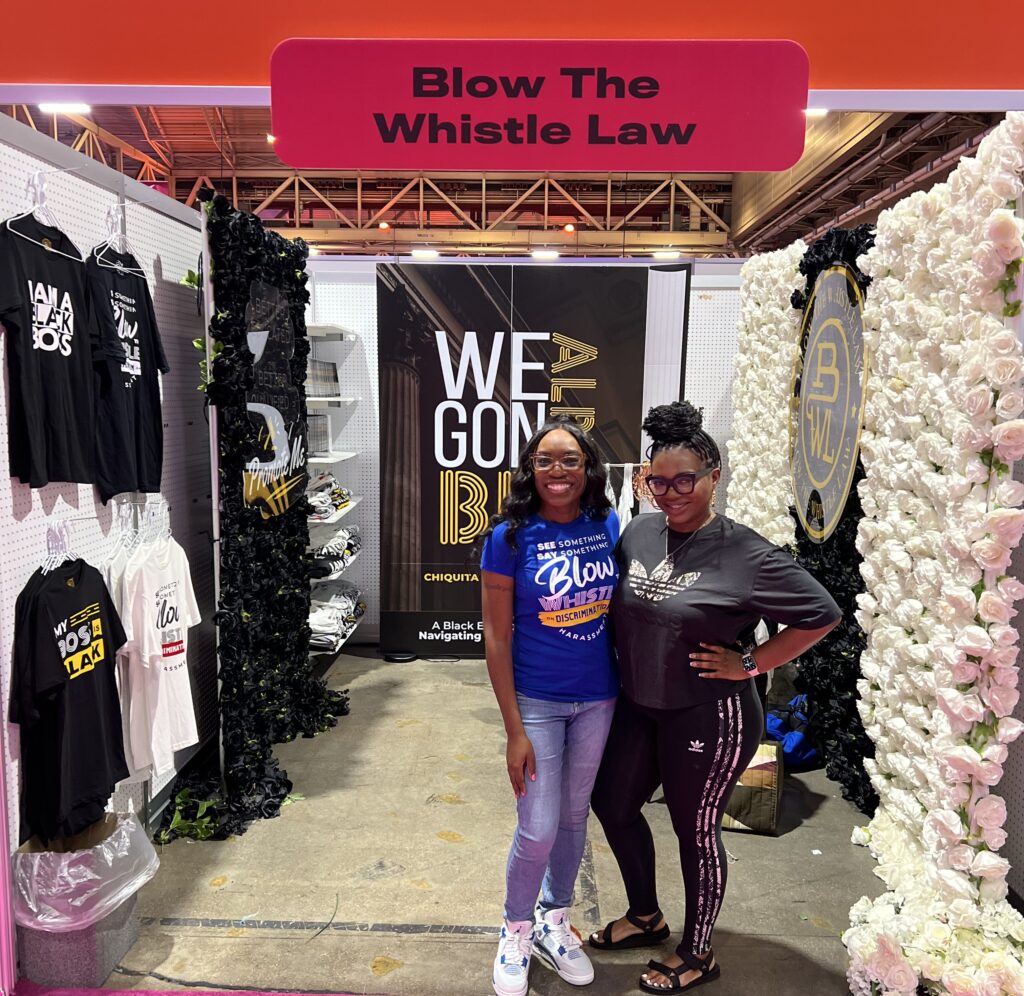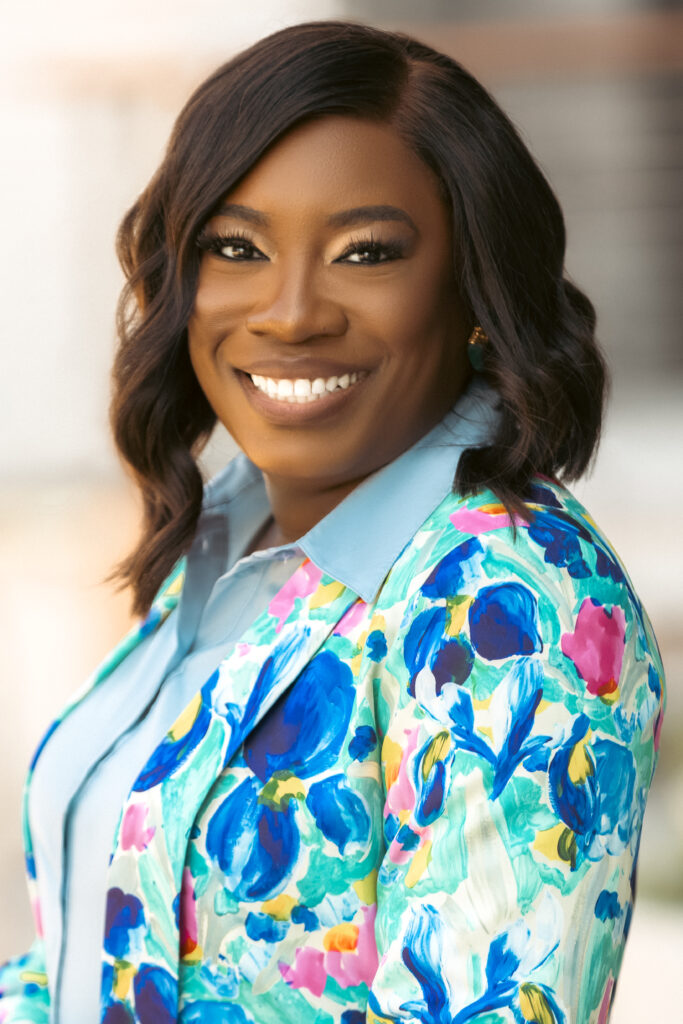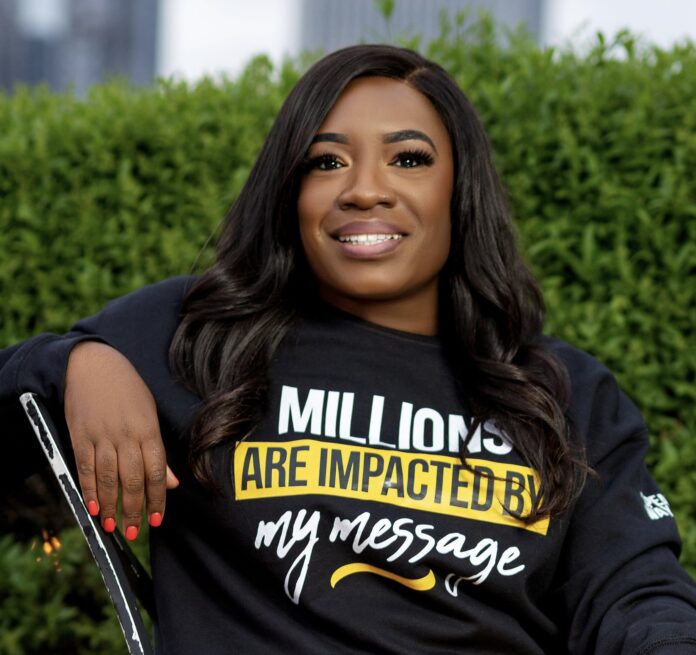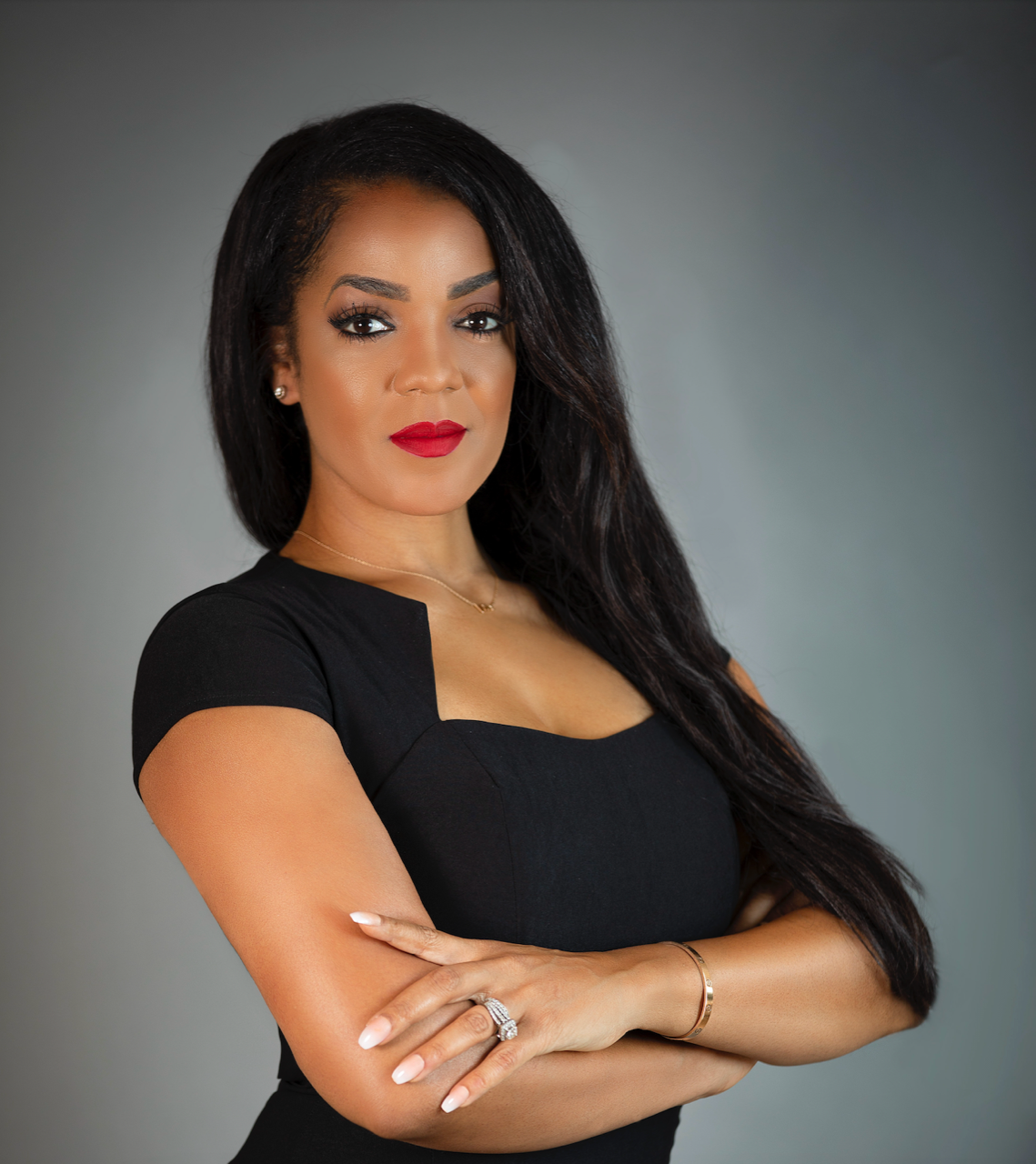( ENSPIRE She Did That ) A Conversation About Discrimination, Social Justice, and Making a Difference
Chiquita Hall-Jackson’s unwavering commitment to justice extends far beyond the courtroom. Her recent appearance at Essence Fest and her role with The Philonise and Keeta Floyd Institute highlights her dedication to empowering employees, advancing social justice initiatives, and fostering positive change nationally.
Through this interview, Chiquita shares her experiences. Her vision for the future of social justice movements, and actionable advice for individuals seeking to protect themselves from discrimination and advocate for change within their communities. She emphasizes the importance of speaking out, demanding accountability, and leveraging social media to amplify the voices of those seeking justice. Chiquita’s story is a powerful reminder that even small actions can contribute to a more significant movement for equality and a more just society.

You recently returned to Louisiana for Essence Fest. How did it feel to return home and connect with the community, especially after making significant career strides?
While I was born and raised in Chicago, Illinois, I consider Louisiana my second home. I was very fortunate to attend law school in the great state of Louisiana, and I felt so ready to return to the state that gave me the incredible opportunity to become an attorney. After applying to more than 40 law schools nationwide, it was such an honor that the incomparable Southern University allowed me to fulfill one of my dreams. Louisiana gave me the title of attorney, helped ground me, and served as the foundation for my becoming a civil rights attorney. Every day, I am fortunate to work on behalf of employees, and I have Louisiana and Southern University to thank for that.
Being from a more northern state, we certainly acknowledge that discrimination exists. It wasn’t until I moved to the South to attend Southern University that I truly experienced its depth. I saw firsthand how deeply rooted discrimination can be, especially in the workplace.
A discriminatory practice led to the founding of my alma mater, Southern University. A group of Black students were trying to enter law school and were accepted into LSU; however, LSU refused to admit them. As a result, legislators and the courts decided to open a Black law school, Southern University Law Center. This tiny group of students became the school’s inaugural class. That egregious discriminatory practice ended up opening the doors for many of today’s Black attorneys.

I appreciate that Southern University, a historically Black college and university, has become so renowned for its legal education that its halls are filled with diverse student bodies.
Louisiana’s history is vibrant and transformative. Returning home, reconnecting with the community, and witnessing its evolution felt good. The people there continue to welcome me with open arms. So many of them offered their support, encouragement, and inspiration while I was there. They reminded me of my purpose—fighting for equal rights for everyone.
Your appointment to The Philonise and Keeta Floyd Institute is groundbreaking. How do you see your role in advancing their mission to combat systemic oppression, and what steps are you taking to achieve this goal?
This opportunity is groundbreaking, and I’m excited to serve the Institute in this role and collaborate with Philonise, Keeta, and the entire team. I define myself as a civil rights attorney, but my daily fight is on behalf of employees. In 2021 and 2022, the George Floyd Justice in Policing Bill was newly proposed and passed both times in the House, yet failed in the Senate. The phenomenal late Sheila Jackson Lee reintroduced the bill, and our goal is to honor her efforts and continue what she was trying to do by advancing the bill. I am committed to working alongside the Institute to make this happen. This bill will govern how the police should behave and conduct themselves; we want this adopted universally. The body cams are not doing enough. We need more. Unfortunately, as it currently stands, the punishment is often minimal to none when unjust police acts take place, and for the few officers who are charged and tried, there is often no real repercussions. Very few are required to serve jail time and are ultimately allowed to return to their regular lives — their past does not follow them. This bill will hold greater accountability for these officers and help prevent another tragedy like George Floyd or Sonya Massey.
Besides adopting this bill, the institute’s other goal is to spotlight officers who are “doing good in the hood.” It’s important to spotlight officers making a positive impact in their communities and upholding the honor of their badge. Additionally, we seek to bridge the gap between youth and law enforcement, helping young people view officers more positively.
Essence Fest has concluded. Reflecting on the event, how do you believe it contributed to the ongoing conversation about Black culture and social justice?
Essence Festival creates a space that welcomes open and honest discussions about Black culture and social justice. It creates opportunities for Black businesses to be recognized, highlights their work, and provides essential investment and networking opportunities often unavailable in more general spaces. It shines a light on people within our community who are making things happen, including myself. Essence Festival makes hidden gems from across the nation more discoverable, reaching a larger audience and making more of an impact. Like me, many other exhibitors/vendors were there with a social justice component. I’m hopeful about our conversations about what we can do as a community to move ourselves forward. Essence Festival also allows for self-reflection within our community on where we are and where we would like to go. It’s great to have a space we can call our own.
The pushback against Diversity, Equity, and Inclusion (DEI) initiatives is complex. Based on your experience, what strategies can Louisiana residents employ to protect themselves from discrimination and harassment in the workplace?
It is a clear and simple strategy. When you see something, say something. Blow the whistle on discrimination and harassment in the workplace. That is the key to protecting yourself and others. Calling out discriminatory or harassment practices sends a message that no amount of negative backlash on DEI will remove accountability from respecting and treating people fairly regardless of race, gender, or other social status. Another important reminder is that every formal complaint does not have to go through Human Resources (HR). You have the legal right to calmly and respectfully inform your colleagues or leaders about discriminatory or harassing behavior. Addressing such behavior directly at the moment can be effective, with the understanding that future incidents may involve HR. If HR does not adequately address your concerns, you can escalate the matter by filing an external complaint under the Whistleblower Act or seeking legal counsel.
How do you envision the evolution of social justice movements, and what role do you see yourself playing in shaping this future?
Social media will be a massive part of the evolution of social justice movements. With a single post, you can quickly share details on how to get involved, what actions to take, and more. Younger generations are going to drastically make a shift in how we advance social justice. Unlike older generations, who relied on storytelling that sometimes diluted or lost essential aspects of the struggle, today’s digital tools provide more direct and impactful communication. Thankfully, it is no longer possible to hide or bury injustices. Social media helps create a voice and an immediate call to action; sometimes, it demands accountability.
Growing up, Johnnie Cochran inspired me, and I knew early on that I wanted to follow in his footsteps and advocate for people. Today, I am fulfilling that role by educating employees about their rights and being a powerful advocate for change in the workplace.
For the average employee, 80% of your week is spent at work. How you’re treated at work and your earnings affect your contributions to your community. Unfair treatment can lead to depression and other health issues, which affect your ability to contribute effectively to your household and community.
My work is to help ensure we have healthy and happy employees who can effectively contribute their time, skills, and resources to their families and communities.
Essence Festival brought together a diverse audience. What key messages do you hope resonated with attendees, and how can they continue to champion social change in their communities?
I hope people are encouraged to speak up for themselves and others, challenge the status quo, and know that everything is possible. While Essence Fest showcases Black Excellence, the broader message is that you are worthy. You deserve mental and physical wellness, love, a respectful workplace, fair pay, and to be your own strongest advocate. This translates to every single person, regardless of their background. You must drive your story, set goals, and create an actionable plan.
If you see something, you must say something to champion social change. Use your voice in both your personal and professional life. At work, if colleagues know you won’t tolerate questionable or illegal behavior, it helps set a standard of accountability. Laws and rights are in place to protect you, so I’m proud of our work with Blow the Whistle Law in advancing social justice advocacy.
Chiquita Hall-Jackson’s unwavering commitment to justice and her tireless efforts to dismantle systemic oppression make her a true inspiration. Her work with The Philonise and Keeta Floyd Institute and her advocacy for employee rights are essential steps toward creating a more equitable society. As we continue to navigate a complex landscape of social justice challenges, Chiquita’s message is clear: we all have a role in driving positive change. By speaking out, demanding accountability, and leveraging our collective voices, we can create a world where everyone is treated with dignity and respect.
Related Articles: Inayah Lamis: Redefining R&B with Fearless Anthems and Social Activism, Nathan Cummings Foundation’s Amazing Social Justice Grant and PRI Opportunity










